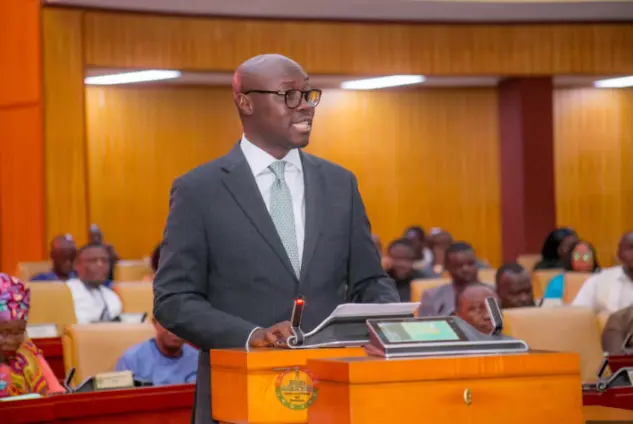Ghana stands at a critical juncture in its economic trajectory. The Forson Doctrine, championed by Minister of Finance Dr. Ato Forson, emerges as a pragmatic strategy aimed at fostering stability and sustainable growth. This doctrine seeks to instill confidence in the cedi while forging a robust economic future for the nation. Central to the Forson Doctrine are key principles encompassing fiscal discipline, prudent gold management, comprehensive energy sector reform, heightened accountability, and the cultivation of strategic global partnerships. These elements, working in concert, are designed to address Ghana’s multifaceted economic challenges, offering a comprehensive approach to recovery and prosperity. The approach emphasizes a return to financial responsibility and strategic resource management, with a focus on long-term stability.
The Forson Doctrine prioritizes realistic solutions centered around the needs of the Ghanaian people, contrasting with previous approaches that may have lacked such direct consideration. The central goal is to restore faith in the Cedi and lay the foundation for enduring economic stability, shifting away from short-term fixes and towards sustainable practices. The core of the plan rests on fiscal prudence and strategic management of Ghana’s key resources.
Understanding the Core Principles of the Forson Doctrine
At the heart of the Forson Doctrine lie five fundamental pillars: fiscal discipline, gold management, energy reform, accountability, and global partnerships. These principles are designed to be realistic and people-centered, emphasizing a practical approach to Ghana’s economic recovery. The ultimate aim is to restore confidence in the Cedi and foster long-term stability, ensuring a more secure financial future for the nation.
1. Fiscal Discipline: Spending Wisely, Not Wildly
A cornerstone of the Forson Doctrine is a commitment to fiscal discipline, prioritizing responsible spending over unrestrained expenditures. This involves strengthening public financial management through amendments to the Public Financial Management Act, which introduce stricter rules on borrowing and budget management. Enhanced financial controls and rigorous compliance evaluations for public agencies are also crucial components of this pillar. This shift represents a move towards greater accountability and transparency in state institutions, ensuring that public funds are used wisely and effectively.
“With amendments to the Public Financial Management Act, the government has introduced stronger rules on borrowing and budget management,” Dr. Ato Forson is expected to assert, underscoring the commitment to responsible financial governance.
2. Guarding the Gold: Leveraging Ghana’s Mineral Wealth
Recognizing the potential of Ghana’s gold reserves, the Forson Doctrine emphasizes leveraging this mineral wealth to stabilize the Cedi and strengthen the economy. The establishment of the Ghana Gold Board (GoldBod) aims to formalize gold trading and bolster foreign exchange reserves. This initiative addresses the historical gap in effectively utilizing Ghana’s gold production for economic benefit. Recent appreciation of the cedi has been connected to improvements in gold management practices, demonstrating the potential of this approach.
“The establishment of the Ghana Gold Board (GoldBod) aims to address this gap by formalizing gold trading and strengthening foreign exchange reserves,” according to an official statement, highlighting the strategic importance of this initiative.
3. Stopping the Power Losses: Reforming the Energy Sector
The energy sector has been a significant drain on Ghana’s economy, with annual losses exceeding $2 billion. Recognizing the urgency of this issue, the Forson Doctrine prioritizes comprehensive reforms in the energy sector. Strategies include increased private sector participation, fairer procurement processes, and stronger oversight to ensure a reliable and efficient power supply for industries and households. By addressing the inefficiencies and challenges in the energy sector, the Forson Doctrine aims to unlock its potential as a driver of economic growth.
4. Holding Officials Accountable: Ensuring Transparency
Accountability is a central tenet of the Forson Doctrine, ensuring that public officials are held responsible for their use of public funds. The establishment of a Compliance Desk serves as an internal accountability mechanism, monitoring how public funds are used and rewarding compliant institutions while exposing those that fall short. This promotes integrity, reduces the misuse of resources, and integrates oversight into the system, fostering a culture of transparency and responsibility.
5. Teaming Up Globally: Strategic International Partnerships
The Forson Doctrine recognizes the importance of strategic collaboration with international financial institutions, emphasizing balanced engagement that supports domestic reforms. The goal is to leverage international support as a catalyst for strengthening Ghana’s internal systems and preserving economic sovereignty. By carefully managing global partnerships, Ghana can harness external resources to enhance its own economic capabilities and build a more resilient future.
The Forson Doctrine provides a tangible pathway for Ghana’s economic recovery. Its focus on fiscal discipline, resource optimization, and institutional accountability offers a clear framework for addressing the nation’s economic challenges. Consistent implementation is crucial, and the doctrine’s emphasis on practical solutions provides renewed clarity to Ghana’s economic agenda. Embracing these principles can pave the way for a more stable and prosperous future for Ghana and restore confidence in the cedi.
Image Source: MYJOYONLINE






















